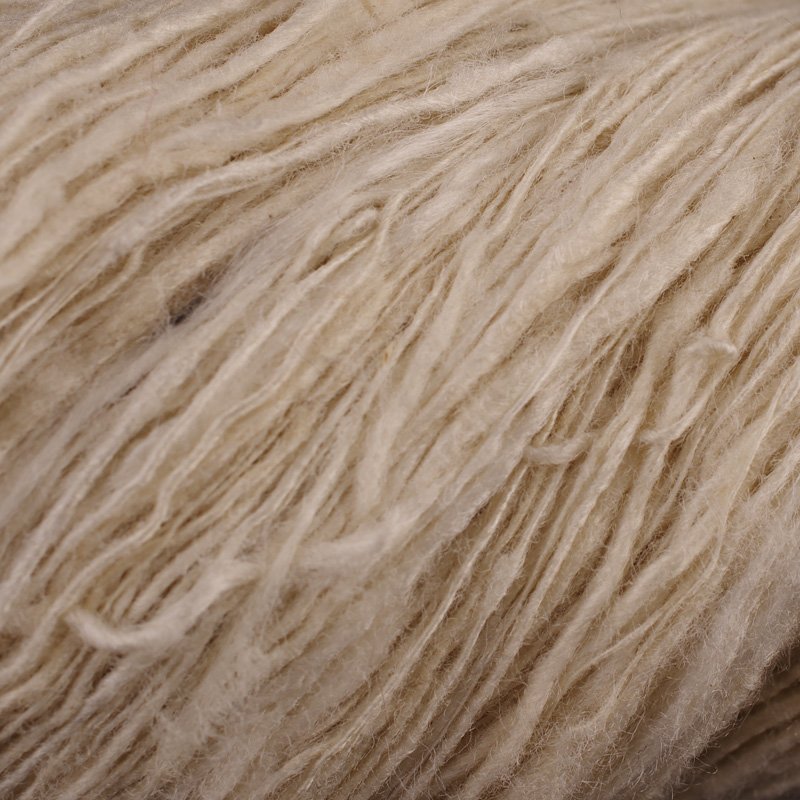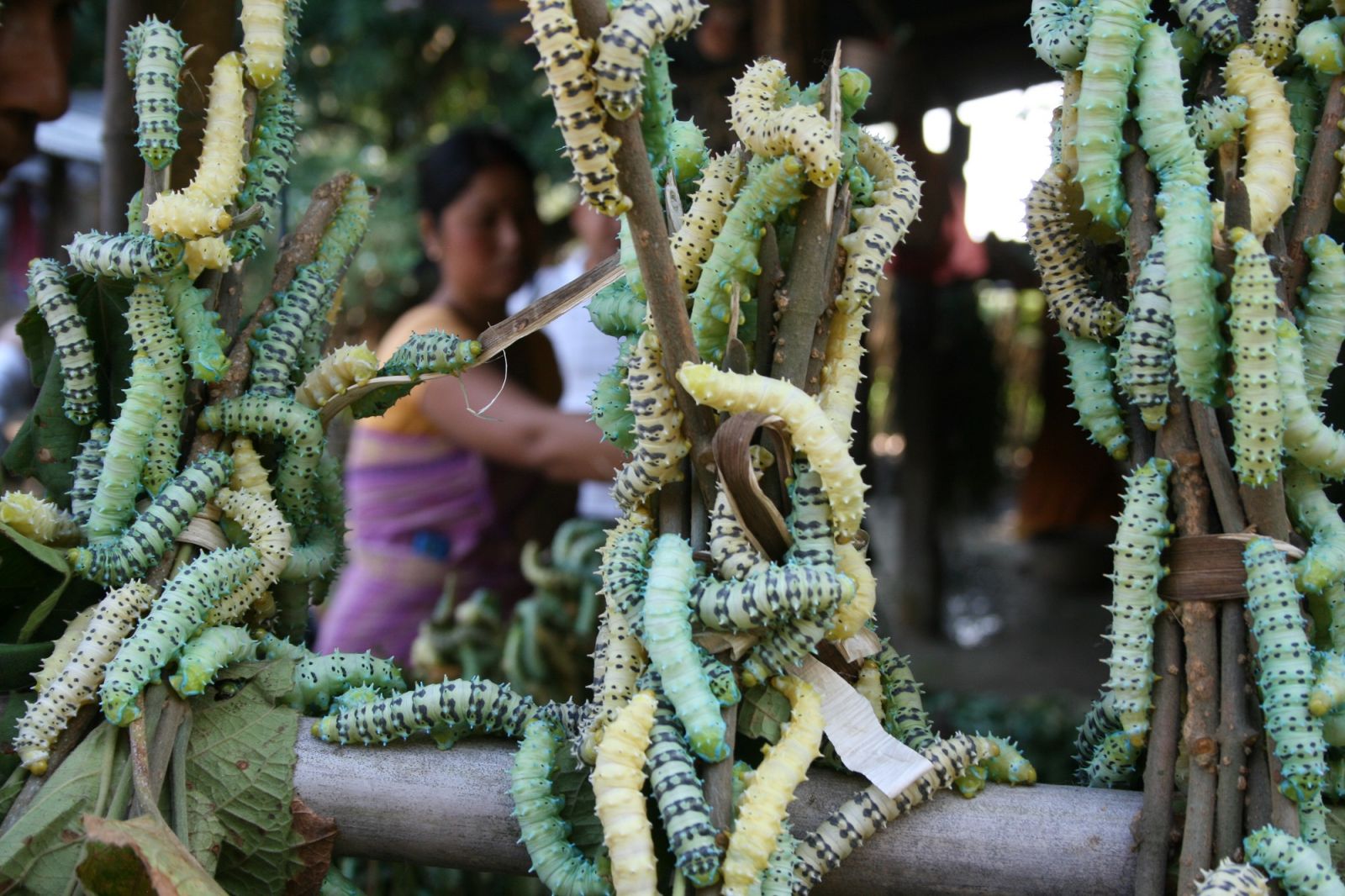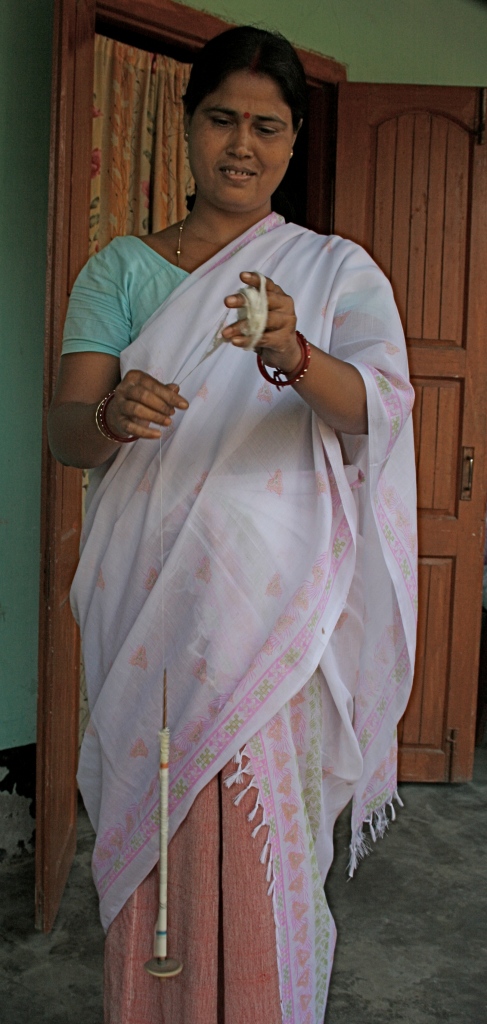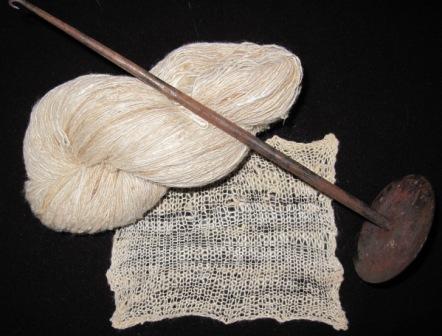
We have expanded our Wild Silk selection - we now carry Eri silk yarn, hand-spun on a takhli by villagers in India.
Philosamia ricini caterpillar
Most eri silk is raised in the northeastern states of India. Unlike all the other silk worms, the Philosamia ricini caterpillar does not spin one continuous strand of silk when making its cocoon. It spins a while and then stops, spins and stops, continuing this way until it is finished. This stop-and-go process results in a cocoon that does not have one continuous strand, thus it cannot be reeled.

Photo (above) Eri Silk Caterpillers (aka Silk Worms); photo by Karen Selk
Making Eri Yarn
The majority of eri silk worms are reared by village women and the silk is spun on a drop spindle called a takhli. The eri silk yarn that we carry was raised and spun this way.
The income the village women makes raising/spinning eri is an important contribution to the family. It is likely her husband is a farmer; in all culture, farming is an uncertain source of income so her 
Eri Silk Yarn
Eri silk is a lovely creamy white—it isn’t the brilliant white of the Bombyx silk, nor is it the lovely honey color of the Tussah silk. Eri silk yarn is less lustrous than the other spun silks that Treenway Silks carries; this gives it an “earthier” feel.
Our eri silk yarn is a “singles” yarn. A singles yarn does not have the strength of a plied yarn and it isn’t typically suitable for a warp. However, I was assured that the Indian weavers use this Eri Silk yarn as a warp—you can try it if you’re brave, but I would first sample with a short, narrow piece!
This yarn is approximately 10/1 size or “cobweb”. It has enough twist that it can wind back on itself, so this could make an interesting weft for collapse weaving.
Diane knitted a swatch of eri silk for us.
She used size 0 needle and the gauge for an inch was 7.5 stitches and 12 rows.
Diane told us that “the Eri Silk makes an interesting fabric because of the texture of the yarn. I did have some difficulty winding off the skein as the yarn tended to want to stick together.” Due to the hand-crafted process, some of the skeins have more twist than others and Diane received one of the more twisted skeins to knit our sample.
As the yarn is hand-spun into a skein, each skein can vary quite a bit in weight. As with all Treenway Silks yarns, we weight each skein in grams and price it accordingly. The skeins vary in weight. We bundle skeins together to reach approximately 70-80grams. For more info, click here

